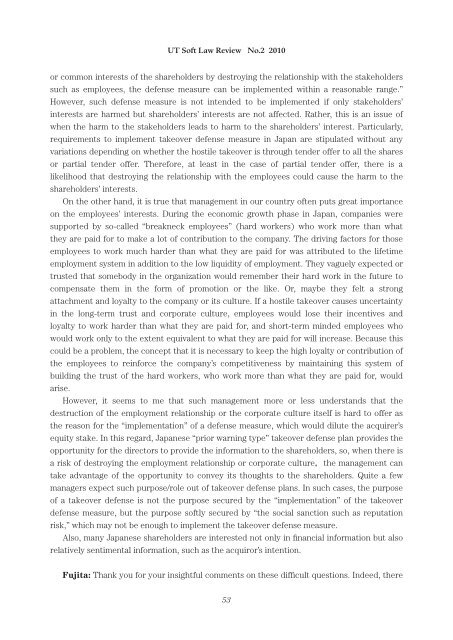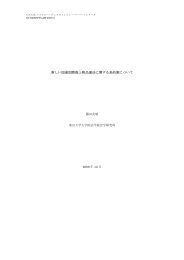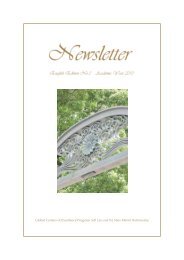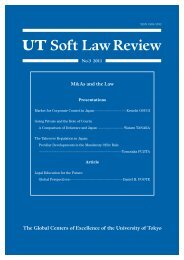UT Soft Law Review
UT Soft Law Review
UT Soft Law Review
You also want an ePaper? Increase the reach of your titles
YUMPU automatically turns print PDFs into web optimized ePapers that Google loves.
<strong>UT</strong> <strong>Soft</strong> <strong>Law</strong> <strong>Review</strong> No.2 2010or common interests of the shareholders by destroying the relationship with the stakeholderssuch as employees, the defense measure can be implemented within a reasonable range.”However, such defense measure is not intended to be implemented if only stakeholders’interests are harmed but shareholders’ interests are not affected. Rather, this is an issue ofwhen the harm to the stakeholders leads to harm to the shareholders’ interest. Particularly,requirements to implement takeover defense measure in Japan are stipulated without anyvariations depending on whether the hostile takeover is through tender offer to all the sharesor partial tender offer. Therefore, at least in the case of partial tender offer, there is alikelihood that destroying the relationship with the employees could cause the harm to theshareholders’ interests.On the other hand, it is true that management in our country often puts great importanceon the employees’ interests. During the economic growth phase in Japan, companies weresupported by so-called “breakneck employees” (hard workers) who work more than whatthey are paid for to make a lot of contribution to the company. The driving factors for thoseemployees to work much harder than what they are paid for was attributed to the lifetimeemployment system in addition to the low liquidity of employment. They vaguely expected ortrusted that somebody in the organization would remember their hard work in the future tocompensate them in the form of promotion or the like. Or, maybe they felt a strongattachment and loyalty to the company or its culture. If a hostile takeover causes uncertaintyin the long-term trust and corporate culture, employees would lose their incentives andloyalty to work harder than what they are paid for, and short-term minded employees whowould work only to the extent equivalent to what they are paid for will increase. Because thiscould be a problem, the concept that it is necessary to keep the high loyalty or contribution ofthe employees to reinforce the company’s competitiveness by maintaining this system ofbuilding the trust of the hard workers, who work more than what they are paid for, wouldarise.However, it seems to me that such management more or less understands that thedestruction of the employment relationship or the corporate culture itself is hard to offer asthe reason for the “implementation” of a defense measure, which would dilute the acquirer’sequity stake. In this regard, Japanese “prior warning type” takeover defense plan provides theopportunity for the directors to provide the information to the shareholders, so, when there isa risk of destroying the employment relationship or corporate culture,the management cantake advantage of the opportunity to convey its thoughts to the shareholders. Quite a fewmanagers expect such purpose/role out of takeover defense plans. In such cases, the purposeof a takeover defense is not the purpose secured by the “implementation” of the takeoverdefense measure, but the purpose softly secured by “the social sanction such as reputationrisk,” which may not be enough to implement the takeover defense measure.Also, many Japanese shareholders are interested not only in financial information but alsorelatively sentimental information, such as the acquiror’s intention.Fujita: Thank you for your insightful comments on these difficult questions. Indeed, there53





